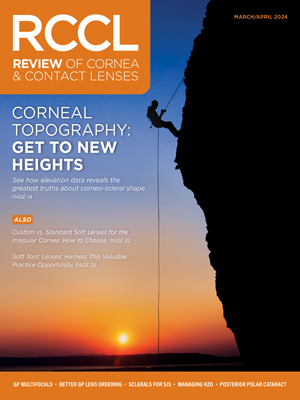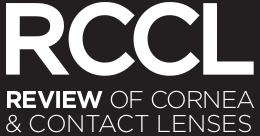 |
All of us have patients who have had a successful full-thickness corneal transplant or a lamellar procedure. Immunization for SARS/CoV-2 (COVID-19) is certainly front and center, so what exactly do you tell these patients regarding it? Does the risk for a vaccine-related rejection (or risk for adverse reaction and vaccine-derived disease) outweigh any benefit in reducing the risk for getting infected?
We just don’t know for certain how often corneal rejection episodes occur (if at all) after any vaccination, SARS-CoV-2 vaccination included. Causation hasn’t been proven. Large studies, including a meta-analysis, have shown no evidence that influenza vaccines cause rejection in solid organ transplant recipients, but anecdotal reports of adverse events have been shared on various forums suggesting causation or association.1 Registries and audits for these patients are sorely needed in order to make timely and meaningful recommendations.
Assess the Risk
A recent survey of cornea surgeons investigated attitudes and practices regarding added risk for rejection in transplanted patients following immunization.1 This manuscript reports the clinical attitudes of 142 current corneal specialists and their specific responses to 18 clinical scenarios. Decision-making scenarios for early and late time points were explored regarding both shingles and influenza vaccinations in grafted patients. Either not recommending vaccination for young, recently grafted (or other high-risk patients) or treating patients with an increase in topical steroids prior to and following vaccination for 10 days to two weeks seems prudent. But, nearly half of those surveyed recommended no change in ocular management with immunization since most of these patients used a low-dose, chronic topical steroid.1
Of those surveyed, 19.7% stated they have personally observed a rejection episode associated with a recent vaccination even though only four papers totaling 12 cases of rejection following recent vaccination were identified in published literature the past three decades.1 Should actual rejection be suspected, clinicians should question patients about any recent immunization and treat with an increase in topical steroids.1,2 Most of these reported cases are fortunately reversed, and patients seem to recover totally with prompt topical steroid use.2 Treatment for rejection in some cases may require both topical and systemic steroid use.
Dealing with Rejection
Several anecdotal cases of rejection episodes following SARS-CoV-2 vaccination have been reported. Most occurred within two weeks of receiving the first or second dose of vaccine. To effectively prevent or mitigate possible vaccination-related rejection, we must first be aware of vaccination schedules to highlight any concerns.1 Educate patients on what to look for and not hesitate to call should they have any concerns.
With a worldwide vaccination program underway, we have a unique opportunity to record and assess cases of rejection that happen following recent vaccination. Timelines, management of such rejections and success in any recovery would be important data. Still, more research is required regarding possible causation or association in order to provide guidance necessary in making meaningful recommendations.
Clinicians are encouraged to publish any suspected case of vaccine-associated rejection episodes, but making this available in a public forum might just frighten those who are still considering vaccination.1 Until we have solid evidence-based recommendations, consult your cornea specialist. Don’t be surprised if recommendations vary greatly among experts and may depend on the type of graft and age of the patient. But, recommending against getting vaccinated doesn’t seem wise since treating a graft rejection sure beats being on a respirator. However, I realize a young, healthy graft patient at low risk for COVID-19 complications may elect to not be vaccinated after being fully informed.
1. Lockington D, Lee B, Jeng BH, et al. Survey of corneal surgeons’ attitudes regarding keratoplasty rejection risk associated with vaccinations. Cornea. January 20, 2021. [Epub ahead of print]. 2. Steinemann TL, Koffler BH, Jennings CD. Corneal allographic rejection following immunization. Am J Ophthalmol. 1988; 106(5):575-8. 3. Lehmann A, Matoba A. Reactivation of herpes zoster stromal keratitis after HZ/su adjuvanted herpes zoster sub-unit vaccine. Ophthalmology. 2018; 125(11):1682. |


